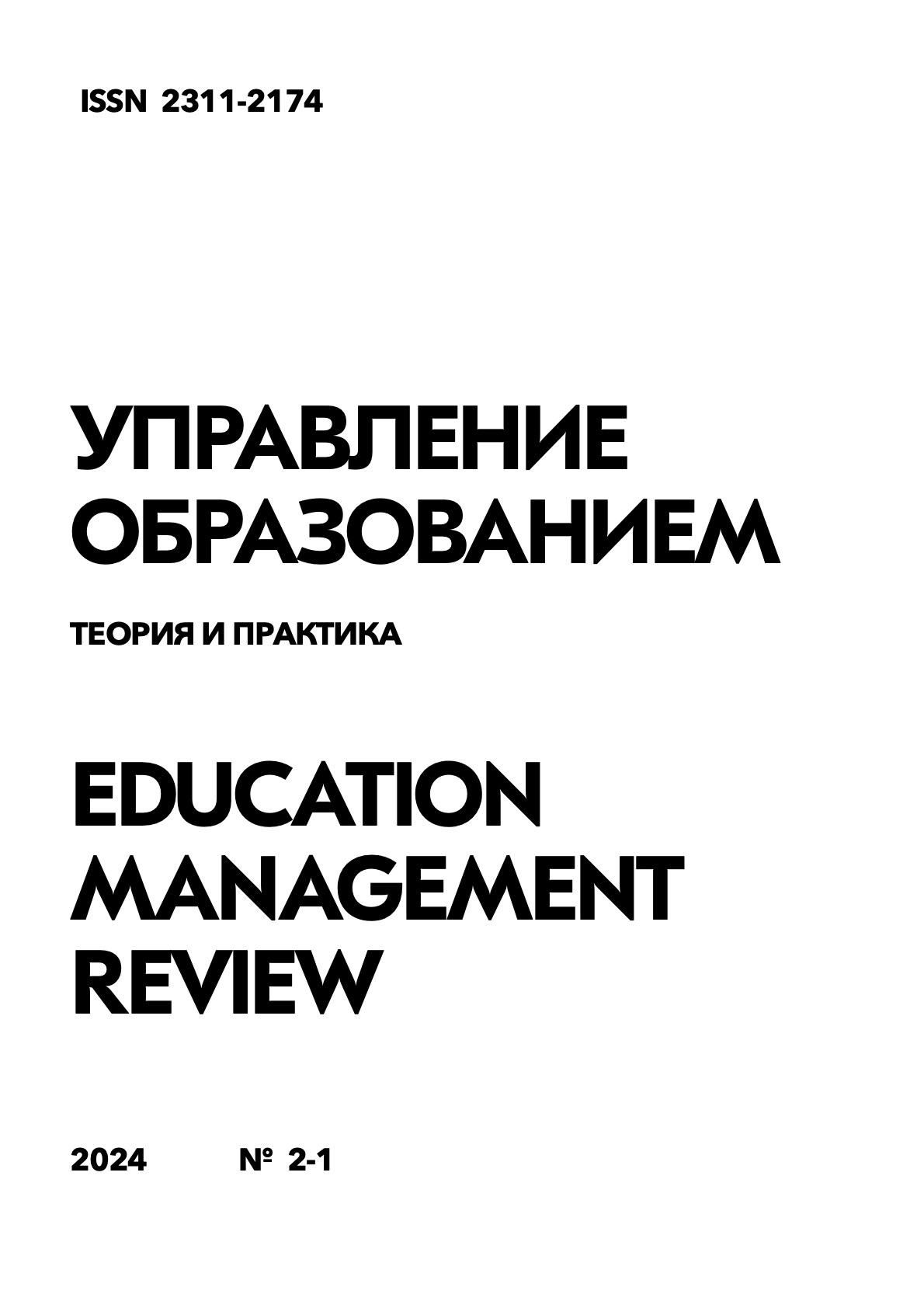An overview of modern approaches to distance learning and their impact on the quality of education
DOI:
https://doi.org/10.25726/k0997-8350-8441-mKeywords:
distance learning, online education, quality of education, innovative technologies, personalized learning, adaptive learning, virtual reality, gamificationAbstract
In the era of digital technologies and globalization, distance learning is becoming increasingly popular, providing new opportunities for education, regardless of geographical location. This article is devoted to an overview of modern approaches to distance learning and their impact on the quality of education. The analysis used data from statistical studies, surveys of students and teachers, as well as scientific publications on this topic over the past 5 years. The research methodology includes system analysis, comparative analysis and the method of expert assessments. The results of the study show that the use of innovative technologies, such as virtual and augmented reality, gamification and adaptive learning, contributes to increasing student engagement and the effectiveness of the educational process. Thus, according to a survey of 1,500 students from 10 countries conducted in 2022, 78% of respondents noted that the use of interactive elements in courses significantly increases motivation to study. In addition, the introduction of personalized educational trajectories based on big data analysis makes it possible to adapt educational material to the individual needs and abilities of each student, which leads to improved academic results. For example, an experiment conducted in 2021 at a US university showed that students enrolled in personalized programs performed on average 15% better on final tests compared to the control group. However, despite the obvious advantages, distance learning also faces a number of problems, such as insufficient technical equipment, difficulty in controlling the quality of education and the risk of reducing students' social skills. To overcome these challenges, it is necessary to improve the regulatory framework, develop quality standards for online courses and integrate distance learning with traditional forms of education. In conclusion, it can be stated that modern approaches to distance learning open up new horizons for the development of education, but their successful application requires an integrated approach and consideration of potential risks.
References
Аймалетдинов Р.Т. Особенности обучения студентов с использованием гибридных аудиторий // Вестник МГПУ Серия: Информатика и информатизация образования. 2022. № 3(61). C. 58- 73.
Антоненко Т.И., Велицкая Е.Г., Корзо А.В. Структурно-функциональный подход к преподаванию практической грамматики иностранного языка в вузе и школе // Актуальные проблемы преподавания иностранных языков в высшей школе Республики Беларусь: сб. науч. ст.: сб. мат. III Респуб. науч. интернет-конф., Могилев, 25 октября – 25 декабря 2014 г. Под ред. Е.Е. Иванова. Могилев: МГУ имени A.А. Кулешова, 2015. С. 66-71.
Вайндорф-Сысоева М.Е., Грязнова Т.С., Шитова В.А. Методика дистанционного обучения: учеб. пособие для среднего профессионального образования. М.: Юрайт, 2020. 194 с.
Гречушкина Н. В. Онлайн-курс: определение и классификация // Высшее образование в России. 2018. № 6. С. 126-134.
Заборова Е.Н., Глазкова И.Г., Маркова Т.Л. Дистанционное обучение: мнение студентов // Социологические исследования. 2017. № 2. С. 131-139.
Ивко В.И., Шевченко О.И. Формы дистанционного обучения в вузе // Инновационная наука. 2018. № 12. С. 175-178.
Каримова Р.М. Дистанционное обучение и его технологии // Современные проблемы социально-гуманитарных наук. 2016. № 2(4). С. 8-11.
Колосова М.В., Канина Н.А. Взаимосвязь характерологических особенностей и мотивации выбора форм дистанционного обучения послевузовской молодежи // Актуальные проблемы социальных и психологических наук: теория, методология, практика: материалы симпозиума XV (XLVII) Междунар. науч.-практ. конф. Кемерово, 2020. С. 27-30.
Кузнецов А.Б., Худяков В.Н. Требования и принципы построения содержания электронного учебника // Современная высшая школа: инновационный аспект. 2016. Т. 8. № 2(32). С. 70- 77.
Михеева Н., Цзэн Юньтин. Дистанционное обучение китайскому языку // Научный вестник Гуманитарно-социального института. 2021. № 12. С. 8-11.
Педагогические технологии дистанционного обучения: учеб. пособие для вузов / под ред. Е. С. Полат. 3-е изд. М.: Юрайт, 2020. 392 с.
Третьякова Г.В. Когнитивный подход в обучении иностранному языку как мотивационный инструмент для студентов // Коммуникация и обучение. Communication and Teaching. SERVICE plus SCIENTIFIC JOURNAL. 2021. № 15(2). С. 124-132
Яницкий М.С. Психологические аспекты цифрового образования // Профессиональное образование в России и за рубежом. 2019. № 2. С. 38-44.
Ferri F., Grifoni P., Guzzo T. Online learning and emergency remote teaching: opportunities and challenges in emergency situations // Societies. 2020. Vol. 10. № 4. P. 86.
Helm C., Huber S., Loisinger T. Meta-review on findings about teaching and learning in distance education during the Corona pandemic-evidence from Germany, Austria and Switzerland // Zeitschrift fur Erziehungswissenschaft. 2021. Vol. 24. № 2. рр. 237-311.

